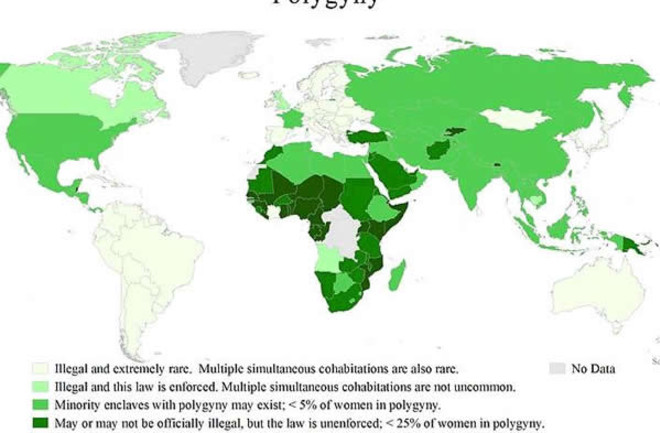The title is rather loud and non-objective. But that seems to me to be the upshot of Henrich et al.'s The puzzle of monogamous marriage (open access). In the abstract they declare that "normative monogamy reduces crime rates, including rape, murder, assault, robbery and fraud, as well as decreasing personal abuses." Seems superior to me. As a friend of mine once observed, "If polygamy is awesome, how come polygamous societies suck so much?" Case in point is Saudi Arabia. Everyone assumes that if it didn't sit on a pile of hydrocarbons Saudi Arabia would be dirt poor and suck. As it is, it sucks, but with an oil subsidy. The founder of modern Saudi Arabia was a polygamist, as are many of his male descendants (out of ~2,000). The total number of children he fathered is unknown! (the major sons are accounted for, but if you look at the genealogies of these Arab noble families the number of daughters is always vague and flexible, because no one seems to have cared much)
Monogamous societies superior to polygamous societies

Newsletter
Sign up for our email newsletter for the latest science news
0 free articles left
Want More? Get unlimited access for as low as $1.99/month
Stay Curious
Sign up for our weekly newsletter and unlock one more article for free.
View our Privacy Policy
Want more?
Keep reading for as low as $1.99!
Already a subscriber?
Find my Subscription
More From Discover
Stay Curious
Subscribe
To The Magazine
Save up to 40% off the cover price when you subscribe to Discover magazine.
Copyright © 2025 LabX Media Group
